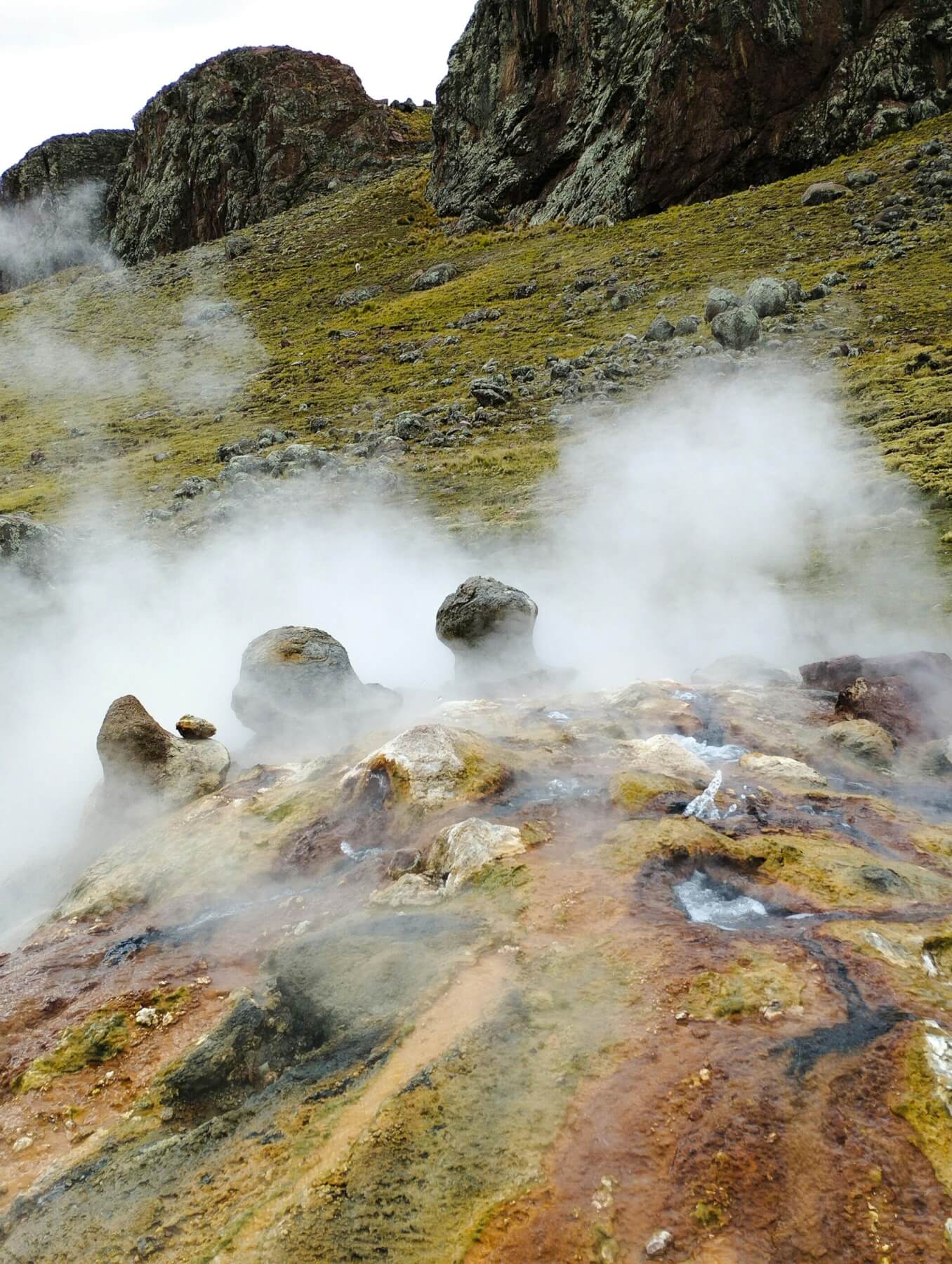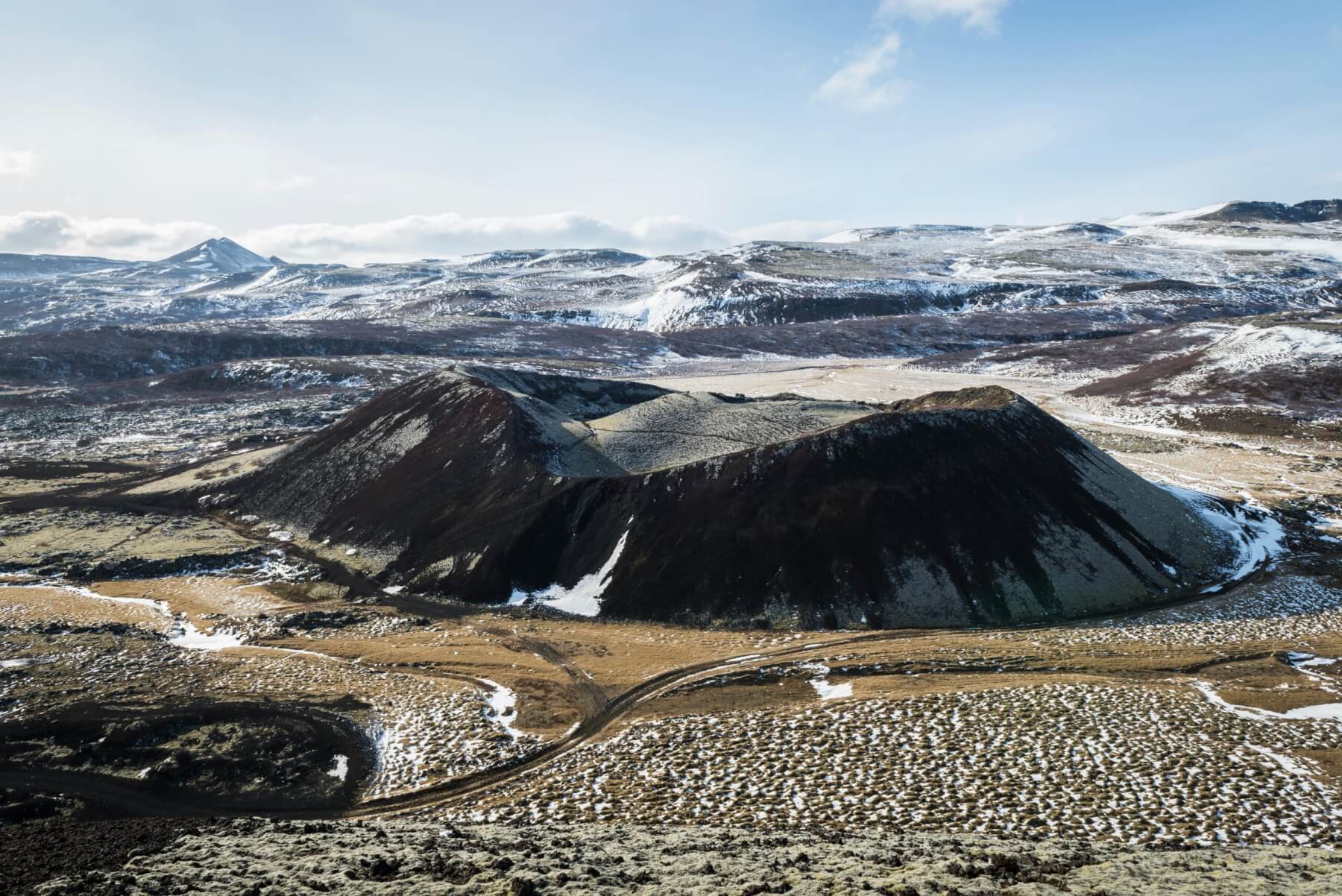There have been flight cancellations in Indonesia recently following the eruption of Lewotobi Laki-laki, reminding us that volcanoes can impact areas far away from the eruption location.

Janine Krippner
Volcanic ash is the most far-reaching hazard that can extend across oceans and countries, with impacts depending on where the ash is blown, how much ash falls to the ground, and the size of the particles – remembering that volcanic ash is pulverised rock, and what is in the way – air transportation routes, shipping, and infrastructure and life on the ground. This includes us, right here.
Much of our modern life here is reliant on vehicles on roads, and it is our reliance that leads to greater impacts. When it comes to road traffic there are several ways ash can impact us.
Visibility is a big issue. Eruptions can turn day to night as ash plumes can block out the sun and the ash falls to the ground. If you have ashfall occurring, seeing through this cloud of rock particles falling from the sky is a problem. This can continue long after the eruption ends if there is resuspension of the ash where it is blown around by wind, traffic, or other human activity. Headlights and brake lights can become next to useless and barely visible to others on the road.

Volcanic gas on the ground. Anyela Málaga pexels.com
Road markings can be covered by less than 1 mm of ash. Thankfully we tend to have marker posts along the side of our roads, but depending on the conditions these could be difficult to see.
Gritty ash on roads can also make them a bit slippery (reduced traction) in both wet and dry conditions.
If you have a 2WD vehicle you likely won’t be able to use a road with more than 10 cm of ash cover.
All of these mean that there could be an increased chance of accidents on our roads. During the 1980 Mount St Helens eruption it is estimated that hundreds of road accidents followed.
This is yet another reason why volcano monitoring is so important, even if we don’t live near a volcano as the ashfall often occurs hundreds of kilometres downwind.
After this, there is the impact to the vehicles themselves. Ash is highly corrosive and can damage windscreens, engine components, metal surfaces, and paint. Using windscreen wipers to clear the ash can scratch the glass and reduce visibility. If you are ever in this situation, use water to wash it off. This includes the glasses on your face. I have destroyed glasses by cleaning them on volcanoes. Ash can also clog air filters and radiator systems, although this could take longer in newer vehicles. Humid conditions can make this worse.
Volcanic ash plumes are blown by the wind. Where volcanic ash goes is dependent on the style and size of the eruption, and wind direction and speed. These can all change during an eruption. When we have large ash plumes they can even interact with different wind directions at different altitudes, blowing the ash in different directions.
The bottom line here is that we can be impacted by this, it’s a good idea to know what to do and how it could affect us. Thankfully, we have advice for road network operators in Aotearoa so that this can largely be managed for us, you can search for the “Volcanic ashfall advice for road network operators” poster online.

The Grabrokarfell Volcano in Iceland








